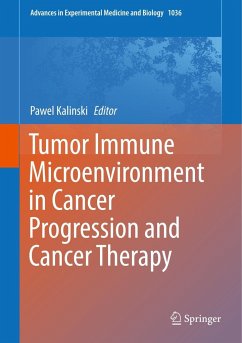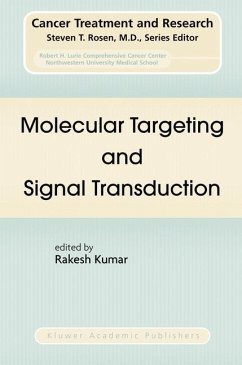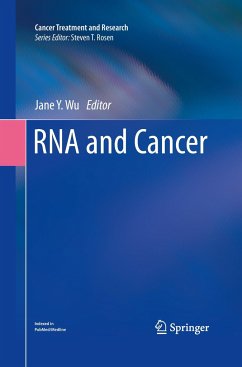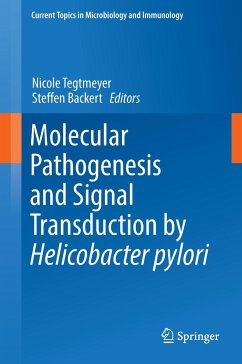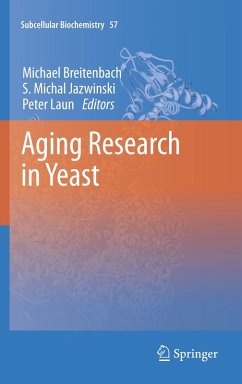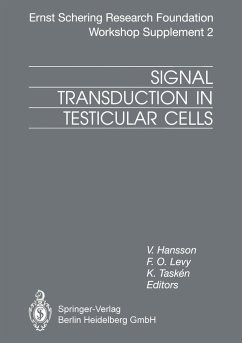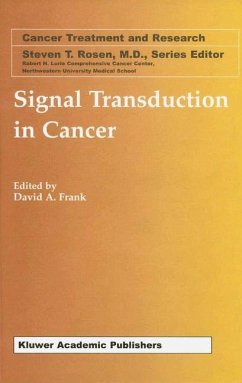
Signal Transduction in Cancer
Versandkostenfrei!
Versandfertig in 6-10 Tagen
113,99 €
inkl. MwSt.

PAYBACK Punkte
57 °P sammeln!
One of the most exciting areas of cancer research now is the development of agents which can target signal transduction pathways that are activated inappropriately in malignant cells. The understanding of the molecular abnormalities which distinguish malignant cells from their normal counterparts has grown tremendously. This volume summarizes the current research on the role that signal transduction pathways play in the pathogenesis of cancer and how this knowledge may be used to develop the next generation of more effective and less toxic anticancer agents. Series Editor comments: "The biolog...
One of the most exciting areas of cancer research now is the development of agents which can target signal transduction pathways that are activated inappropriately in malignant cells. The understanding of the molecular abnormalities which distinguish malignant cells from their normal counterparts has grown tremendously.
This volume summarizes the current research on the role that signal transduction pathways play in the pathogenesis of cancer and how this knowledge may be used to develop the next generation of more effective and less toxic anticancer agents.
Series Editor comments:
"The biologic behavior of both normal and cancer cells is determined by critical signal transduction pathways. This text provides a comprehensive review of the field. Leading investigators discuss key molecules that may prove to be important diagnostic and/or therapeutic targets."
This volume summarizes the current research on the role that signal transduction pathways play in the pathogenesis of cancer and how this knowledge may be used to develop the next generation of more effective and less toxic anticancer agents.
Series Editor comments:
"The biologic behavior of both normal and cancer cells is determined by critical signal transduction pathways. This text provides a comprehensive review of the field. Leading investigators discuss key molecules that may prove to be important diagnostic and/or therapeutic targets."







